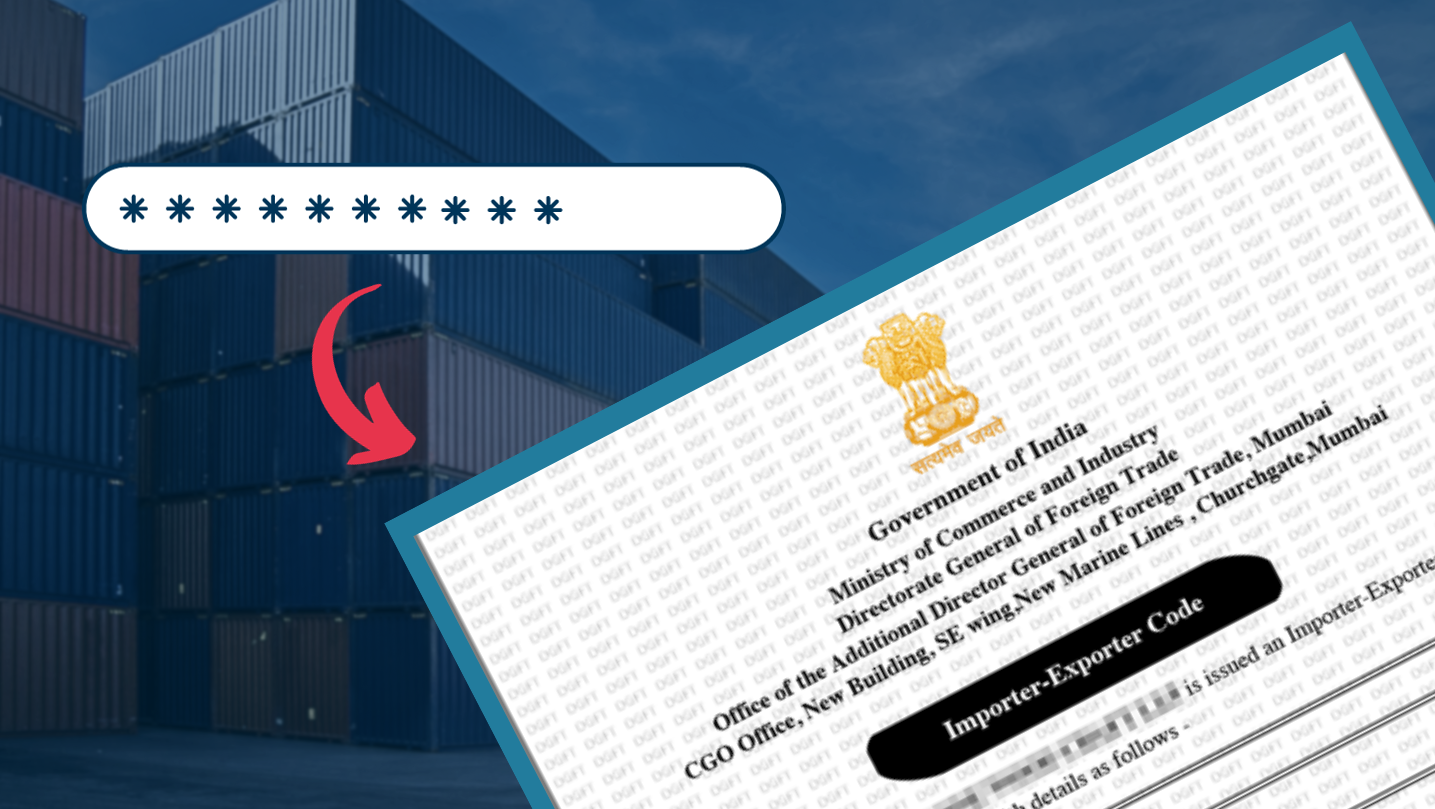
In today’s integral global economy, businesses take opportunities to expand their horizons beyond borders. This has led to an increasing demand for IEC registration, an important requirement for enterprises engaged in international trade. This blog aims to concentrate on the significance, features, and procedural aspects of Import-Export Code registration.
Why do you need an IEC license?
The Import-Export Code composes a unique identification number, essential for businesses involved in importing and exporting goods and services. Without an IEC license, companies face restrictions on engaging in international trade. This section explores an IEC license’s crucial role in facilitating hassle-free cross-border transactions. IEC is used to classify goods for international trade. These codes are essential for several situations in the import and export process.
Here are some common situations where import export codes are required:
Customs Clearance: When goods are imported or exported, customs authorities use the IEC code to classify and identify the products. The code helps in determining the applicable customs duties, taxes, and other applied regulations.
Trade Documentation: Import and export codes are used in different trade documents, such as commercial invoices, packing lists, and bills of lading. These IEC codes provide a standardized way to describe the nature of the goods and services being traded.
Regulatory Compliance: Different countries have different regulations and standards for imported goods. Import-export codes help ensure that the products comply with these regulations. Regulatory bodies may require additional information based on the IEC code to assess compliance with safety, environmental, or other standards.
Quota and Licensing: Some products are based on quotas or licensing requirements. Import-export codes help authorities monitor and control the quantities of these products entering or leaving a country.
Tariff Determination: Import-export codes are used to determine the applicable tariff rates for specific goods. This is important for calculating the cost of importing goods and for budgeting purposes.
Trade Statistics: Governments and international organizations use import-export codes to compile trade data. These analytics are valuable for economic analysis, policy development, and monitoring trade balances.
Preferential Trade Agreements: In the context of preferred trade agreements or free trade agreements, specific codes may be required to qualify for reduced tariffs or zero tariffs.
Risk Assessment: Customs authorities and other agencies may use import-export codes to assess the risk involved with certain goods, especially in terms of security concerns or smuggling.
Supply Chain Management: Companies use import-export codes to manage their supply chains efficiently. These codes help in tracking goods, managing funds, and ensuring that the correct customs procedures are followed.
Product Identification: Import-export codes serve as a standardized way to identify and describe products in the international market, reducing confusion and ensuring a common understanding among trading partners.

Documents required for Import-Export Code registration:
List of the documents necessary for a successful IEC registration process,
- GST certificate
- PAN & Aadhar (Directors/ Partners/ Proprietor)
- Premises Proof of company
- Cancelled cheque
- Partnership deed/ LLP Agreement for Partnership firm
Validity and Renewal procedure of Import-Export Code registration:
The Import Export code is valid for a lifetime and has 10 digits. As a result, updating, annual renewing, or applying for IEC Registration is not difficult. An IEC license is not a one-time affair; it requires periodic renewal to ensure its continuous validity. . There is no IEC registration-related compliance obligation, such as an annual filing requirement
.Compliance: In comparison to other tax registrations, carrying out an export or import does not need to meet any particular compliance requirements, such as the yearly filing or return filings.
In conclusion, navigating the difficulties of international trade demands a thorough understanding of Import-Export Code registration. For businesses looking for comprehensive guidance and for smooth registration processes, PWIP stands as a reliable partner. Contact PWIP for expert team assistance and ensure your journey into the global trade market is free of hurdles and challenges. Your success in international trade starts with a crucial Import-Export Code registration facilitated by PWIP.
